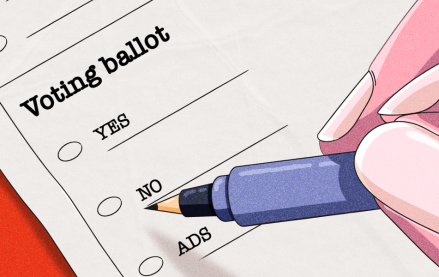
Every day, people go to Facebook, Twitter, Instagram and Pinterest to be greeted with a personalized feed of content unique to them. Then they go to news sites.
Publishers have long struggled with how to personalize content for visitors, often lacking the depth of data and content to be able to serve up a truly personalized experience. The result: Most publishers are stuck in a one-size-fits-all model.
That’s slowly changing. The Huffington Post, one of the earliest publishers to experiment with A/B testing, is now giving readers more personalized content on article pages. The site’s right sidebar, labeled “Suggested for You,” now offers individual users different stories depending on what they’ve read previously. When a reader clicks a story about Amy Pohler and Tina Fey’s Golden Globe Awards jokes, for example, that tells The Huffington Post to offer more stories on Amy Poehler, Tina Fey or the Golden Globe Awards. Matches are done based on a combination of subject, topic and the reading behavior of other readers.
“When people come to us from Facebook or Twitter, they take a snack and they go back where they came from. The more we can keep them here, the better it is for us,” said Huffington Post head of operations Spencer Sloe.
The move is a sensible one for The Huffington Post, a hugely prolific publisher that posts 1,200 articles a day across 92 sections worldwide. Making articles more relevant to individual readers both increases their shelf life and improves the chances that readers will click on more articles. And it’s working. Sloe said that The Huffington Post’s personalization, which is built on top of AOL’s 2014 Gravity acquisition, increased article click-through rate by over 50 percent on average.
Traffic patterns are also dictating the move. At the top of The Huffington Post’s mind is Facebook, which continues to dominate the referral picture of most publishers, including The Huffington Post. The site is one of the popular publishers on Facebook, according to data from News Whip, which found that The Huffington Post’s content was shared nearly 8 million times on Facebook in December. This creates new pressures for The Huffington Post, which has to squeeze as much value out of flighty Facebook visitors before they click the back button.
While The Huffington Post is still in the early days of experimenting with personalization tech — it’s not using it on its homepage, for example — the site is still far ahead of most publishers, which are still feeling their way through implementing similar technology on their sites. It’s a difficult endeavor, particularly for publishers with large bodies of content and high publishing metabolisms.
Other early experimenters include Reuters and NPR, both of which have created products built around reader signals that determine what content to present to them. Reuters TV, for example, uses signals like the local time, viewing habits and even location to decide what to present to users. Likewise, NPR One, NPR’s “Pandora for radio” app, learns user preferences over time by monitoring what users skip. It also uses their location to give users more relevant radio segments.
But while these efforts may help publishers increase reader engagement, they also risk limiting readers to stories they are already interested in. The filter bubble, as the concept is known, has been used to explain why the algorithm-driven Facebook is more likely to give readers stories about the Ice Bucket Challenge than the protests in Ferguson, Missouri.
“Every publisher sees the editorial process of highlighting important stories as a key part of their brand,” said Karl Rinderknecht, COO of Gravity. “Sometimes when they think of personalization, they think it has to mean losing some of that voice.”
More in Media

With Firefly Image 3, Adobe aims to integrate more AI tools for various apps
New tools let people make images in seconds, create image backgrounds, replacing parts of an image and use reference images to create with AI.

Publishers revamp their newsletter offerings to engage audiences amid threat of AI and declining referral traffic
Publishers like Axios, Eater, the Guardian, theSkimm and Snopes are either growing or revamping their newsletter offerings to engage audiences as a wave of generative AI advancements increases the need for original content and referral traffic declines push publishers to find alternative ways to reach readers.

The Guardian US is starting its pursuit of political ad dollars
The Guardian US is entering the race for political ad dollars.






